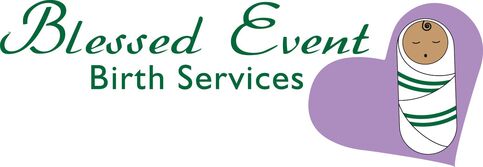Research is not conclusive on this. I have worked with clients who did not use placenta capsules with their first baby and then decided to use placenta with subsequent births. They noticed a faster, easier recovery, better mood stability, more energy and for many, their milk came in sooner, and with greater supply. This anecdotal evidence tells me there are benefits to consuming your placenta.
I've tested positive for Group B strep, is it safe to consume my placenta?
The CDC does not recommend consuming placenta if Mom tested positive for Group B Strep. This recommendation is based on a single instance of a baby having GBS at birth, and having it reoccur at 15 days old. Baby's mother had tested negative at 37 weeks, and had been using placenta capsules. No testing was done on family members who were in close contact with the baby, and while the placenta capsules showed GBS, mother's breastmilk did not. There is no conclusive evidence to show what caused the second infection. There were some questionable practices in how the placenta was encapsulated which were not the recommended standards. We know that preparing the placenta with appropriate methods and at appropriate temperatures will kill GBS. With appropriate preparation, using encapsulated placenta is safe for mothers who have tested positive for GBS provided Mom and baby are not showing any signs of infection in the first hours after birth.
Does the progesterone in the placenta compete with prolactin, or cause issues for lactation?
Most of the research we have is done on animals which may not transfer to humans, and what research I could find on humans was not done during pregnancy or postpartum. The placenta is one of the organs that make prolactin, so while the placenta does have progesterone, it also has prolactin. My personal opinion (since research is limited on this topic) is that the prolactin is not affected by the progesterone in the placenta. This matches the anecdotal evidence I've received from clients that breastmilk comes in sooner and they have a better supply when using placenta capsules.
The placenta is a "filter organ", wouldn't that mean consuming toxins if I consume my placenta?
Yes, the placenta does some filtering. It filters carbon dioxide and waste out of baby's blood and sends those to Mom's blood so they can be removed from her blood cells by the kidneys and liver. Mom's blood is filtered by her kidneys and liver before it reaches the placenta. History has shown that maternal medications, alcohol, nicotine, viruses, and antibodies cross the placenta. Studies completed in 2016 showed that the placenta does not contain any toxins.
Who should not consume their placenta?
If mother or baby shows signs of infection during labor and birth, or in the first hours after birth, placenta encapsulation is not advisable.
Taking placenta capsules can be beneficial in the postpartum period. If you want to use placenta capsules,
be mindful of the following:
- The placenta should be prepared using techniques and temperatures high enough (moist heat of131 degrees F or higher for at least 30 minutes) to kill GBS and other bacteria.
- Placenta capsules should be kept refrigerated while using.
- Placenta capsules should be frozen for long term storage.
- If mother has signs of infection such as a high temperature, unpleasant odor to amniotic fluid or other signs, do not consume the placenta.
- If baby has signs of infection at birth, or in the first hours right after birth, do not consume the placenta.

 RSS Feed
RSS Feed